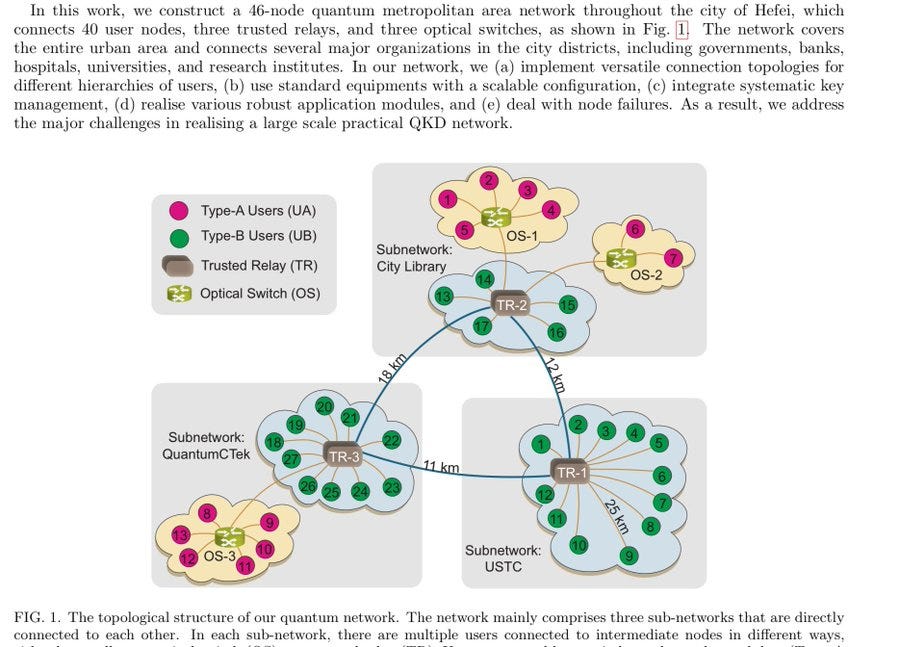TechLetters #50. French military doctrine of information operations? Cyber-mercenaries. Google's privacy success. Quantum communication (cryptographic?) network in Hefei.
Éditorial
It’s 50th?
The French Military released their military doctrine of information operations. My analysis is here. They are correct, information operations/propaganda are lawful under international law. But how happy digital platforms like Facebook will be to constitute an operational theatre is another story.
Security
NATO changes priorities due to cyberwarfare. North-Atlantic Treaty (NATO) to prioritise China as a security challenge? Official explanation: Chinese cyberattacks in Europe ("impact on European security through its cyber capabilities"). Traditional NATO focus used to be Russia/terrorism.
Cyber-mercenaries. UN report "some actions may rise to the level of mercenarism or may be considered mercenary-related activities and also impact human rights both in armed conflict and in peacetime". “The market for offensive cybercapabilities is growing rapidly, is subject to little regulation and offers an opportunity to make a significant profit. As a result, many conventional private military and security companies are developing cybersecurity divisions”.
French information operations. France will build information operations capabilities. Offensive doctrine is ready. The military will only engage in information operations outside the French territory. Against people or States. This is about "winning the war before the war". Plans to engage in "lawful" information operations. Those compatible with international law. For example, tampering with election processes of other democratic states is not an option. How will Facebook or Twitter like becoming offensive information ops theatre? Find my description of French offensive cyber operations (warfare) here, and the French application of international law to cyberwarfare here.
Privacy
Google’s privacy success. Google admits that its policy was to disrupt the works around the #ePrivacy Regulation process (slow it down?). “we have been successful in slowing down and delaying the [ePrivacy Regulation] process and have been…”.
Technology Policy
Other
AI is confusing. “People are getting confused about the meaning of AI in discussions of technology trends—that there is some kind of intelligent thought in computers that is responsible for the progress and which is competing with humans," he says. “We don't have that, but people are talking as if we do.", so is said.
China’s quantum communication network. 46-node quantum key distribution (communication) network in Hefei.
In case you feel it's worth it to forward this letter further, I leave this thingy below:
You may also share here:


